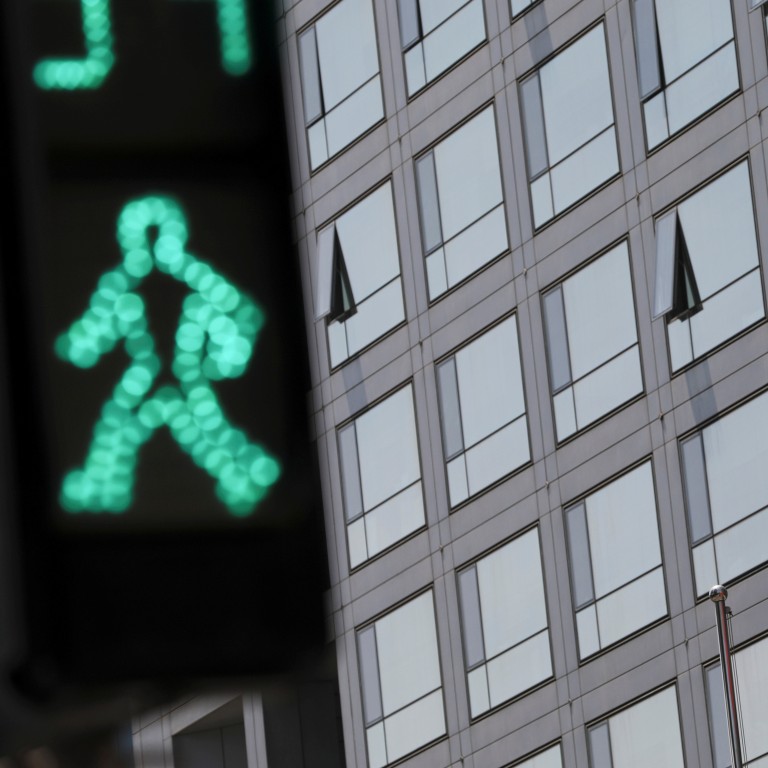
China’s securities watchdog reaches out to US in Didi crackdown aftermath
- CSRC says regulators in both countries should strengthen communication about China-related stocks
- It says it remains open to choices of listing destinations for Chinese companies
“The securities regulators of the two countries should uphold the spirit of mutual respect, strengthen communication on regulating China-related stocks, and find appropriate solutions to create sound policy expectations and a sound regulatory environment for financial markets,” the China Securities Regulatory Commission (CSRC) said on Sunday.
The statement came after the US Securities and Exchange Commission (SEC) on Friday halted Chinese companies from raising money on US financial markets until they improved disclosures of risks to shareholders.
The CSRC said greater regulatory cooperation between the two countries was an “inevitable choice” as investments in each other’s capital markets became intertwined.
It also said it had long been open to choices of listing destinations for Chinese companies.
Beijing has started on-site cybersecurity inspection of Didi Chuxing after the company ‘forced its way’ to a New York listing
China has tightened overseas listing requirements since the Didi investigation, requiring a cybersecurity review of any company with data for more than 1 million users. In addition, Beijing announced a ban on private tutoring and education companies at the end of July.
The CSRC said the increased scrutiny of some industries was to build a sustainable and healthy market.
“The China Securities Regulatory Commission will closely communicate with other government departments to further manage the relationship with investors, companies and regulators, and improve the transparency and expectations of new regulatory measures,” the watchdog said.
It repeated its pledge to further open up China’s financial markets and said the prospects for the Chinese capital market were “predictable, sustainable and healthy”.
After Didi losses, US lawmakers demand probe into Chinese companies on American stock exchanges
Chinese authorities have cracked down on a number of sectors in recent months, each with a different focus but all with a similar impact.
In the aftermath, the share prices of technology companies and dozens of public education providers such as New Oriental plummeted, rippling out into the wider mainland China and Hong Kong stock markets.
In response, the securities regulator convened a virtual meeting with global banks such as Goldman Sachs and UBS Group, with CSRC vice-chairman Fang Xinghai saying the crackdowns were aimed at addressing problems in those industries and helping them grow in a proper manner, according to the Wall Street Journal.
Fang said Beijing had no intention of decoupling from global markets and would consider the market impact in the future before introducing policies, according to the report.
Fund manager nurses losses in China stocks after making a ‘mistake’ in underestimating impact of education crackdown
Xu Jianwei, an economist from Natixis, an international investment bank headquartered in Paris, wrote in a research note that stock markets did not react well to the regulatory moves on Didi and private tutoring.
“The halting of Didi Chuxing’s new registration after its IPO in the US as well as the restrictive measures to clamp down on the booming after-school education market have triggered a collapse of the equity market, especially the tech index, both in the mainland as well as Hong Kong,” Xu wrote.
He added that foreign investors were likely rethinking their strategy when it came to Chinese investments.
US politicians such as Senator Marco Rubio have already proposed banning Chinese companies from listing on American exchanges, because under Chinese law these companies are prohibited from providing audits to US regulators.
Chinese companies have skirted this and other restrictions through listing on overseas exchanges under a shell company outside China, in a mechanism known as a variable interest entity.
The new SEC disclosure rule means that Chinese firms must disclose any plans to sell their stocks through a shell company.
The listing firms will also have to describe the shell company differently from the China-based operating company and make their financial connections clear to investors.

